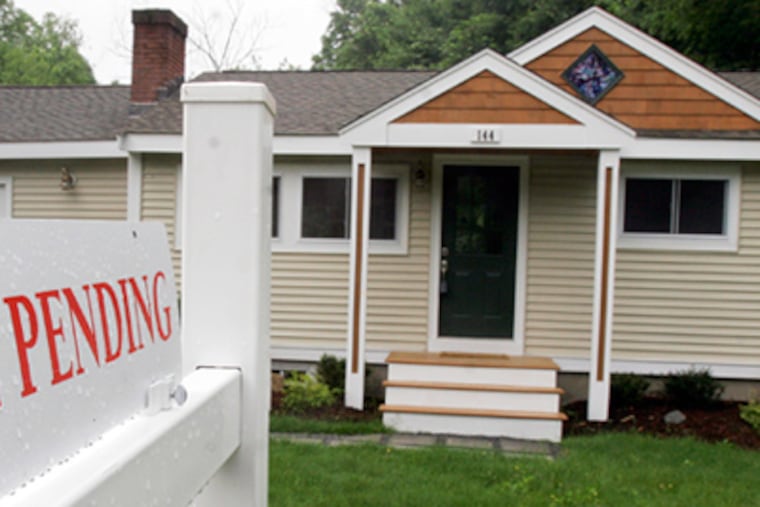Reports detail positive effect of homebuyer credits
The state of the U.S. housing market, and its immediate future, came into sharper focus Wednesday through economic reports pivoting around the now-expired federal tax credits for buyers.

The state of the U.S. housing market, and its immediate future, came into sharper focus Wednesday through economic reports pivoting around the now-expired federal tax credits for buyers.
April 30's deadline for the credits helped boost pending home sales for the third consecutive month, the National Association of Realtors said, citing data reflecting signed sales agreements rather than closings, which lag one or two months behind.
The index the Realtors' group uses to measure pending sales rose 6 percent in April, to 110.9. That was just shy of the 112.4 recorded in October, when buyers were rushing toward the Nov. 30 deadline for the first tax credit, and 22.4 percent above the April 2009 level.
In the eight-county Philadelphia area, pending sales rose 21.6 percent in April over March and were 47 percent higher than a year ago, according to Prudential Fox & Roach's HomExpert Market Report.
With large numbers of purchase contracts going to settlement in May and June, home-sales figures should remain elevated at least through early summer, observers said.
Yet indications are that post-credit activity already has dropped off substantially.
Agents at Long & Foster Real Estate's Blue Bell/Spring House office scheduled 738 appointments to show houses in May, compared with 1,216 in April and 1,242 in March, branch administrator Greg Cressman said.
That figure, Long & Foster regional vice president Art Herling said, "predicts sales."
Lawrence Yun, chief economist for the Realtors' group, said the tax credits - up to $8,000 for qualified first-timers and up to $6,500 for those who had not bought a house in five years or more - brought an additional one million buyers into the market.
"The housing market has to get back on its own feet," Yun said, "and now appears to be in a good position to return to sustainable levels even without government stimulus, provided the economy continues to add jobs."
Foreclosure rates remain historically high nationwide, even as efforts to help borrowers appear to be making headway.
As of April, a combination of lender and government programs had completed 642,000 permanent mortgage modifications this year, according to Hope Now, a private-sector alliance of mortgage servicers, investors, mortgage insurers, and nonprofit counselors.
In addition, Bank of America said Wednesday that it had started an "earned principal forgiveness" approach to modifying troubled loans. The plan is being offered to homeowners who owe considerably more than the current value of their houses as the loans are being considered for the government's Home Affordable Modification Program.
As some economists predicted, home sales resulting from the tax credits did not measure up to the two million purchases the government's 2009 incentive sparked.
But because of that, Patrick Newport of IHS Global Insight and other economists believe, dips in sales over the next couple of months will be smaller than those of the first quarter of 2010. The housing picture will improve on its own "as jobs are created," Newport said.
Wednesday, the Mortgage Bankers Association reported that purchase applications were almost 40 percent below their level of four weeks ago. Applications for refinancing were up 74 percent, though, as 30-year fixed rates remain well below 5 percent.
Financing issues are creating problems for buyers with signed contracts who now face the tax credits' June 30 closing deadline, and Realtors are asking Congress for help.
"Under normal circumstances, two months would be enough time from contract signing to settlement date," Yun said. "However, the recent housing cycle has brought long delays" in processing mortgages.
Yun said Congress was being asked to provide closing-date flexibility for those who bought under the tax credits.